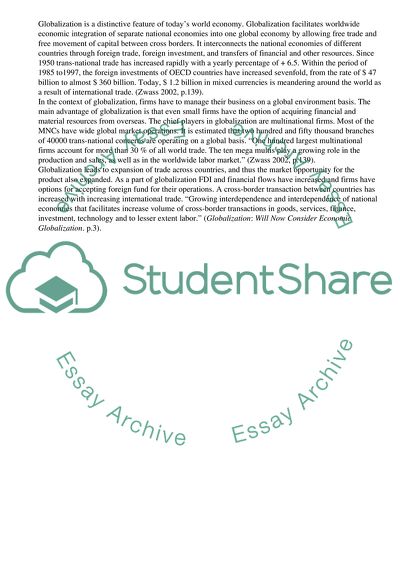Cite this document
(Impact of Globalization on National Economies Case Study, n.d.)
Impact of Globalization on National Economies Case Study. Retrieved from https://studentshare.org/management/1719052-how-could-a-multinational-corporation-get-competitive-advantage-in-operating-in-a-global-economy
Impact of Globalization on National Economies Case Study. Retrieved from https://studentshare.org/management/1719052-how-could-a-multinational-corporation-get-competitive-advantage-in-operating-in-a-global-economy
(Impact of Globalization on National Economies Case Study)
Impact of Globalization on National Economies Case Study. https://studentshare.org/management/1719052-how-could-a-multinational-corporation-get-competitive-advantage-in-operating-in-a-global-economy.
Impact of Globalization on National Economies Case Study. https://studentshare.org/management/1719052-how-could-a-multinational-corporation-get-competitive-advantage-in-operating-in-a-global-economy.
“Impact of Globalization on National Economies Case Study”, n.d. https://studentshare.org/management/1719052-how-could-a-multinational-corporation-get-competitive-advantage-in-operating-in-a-global-economy.


